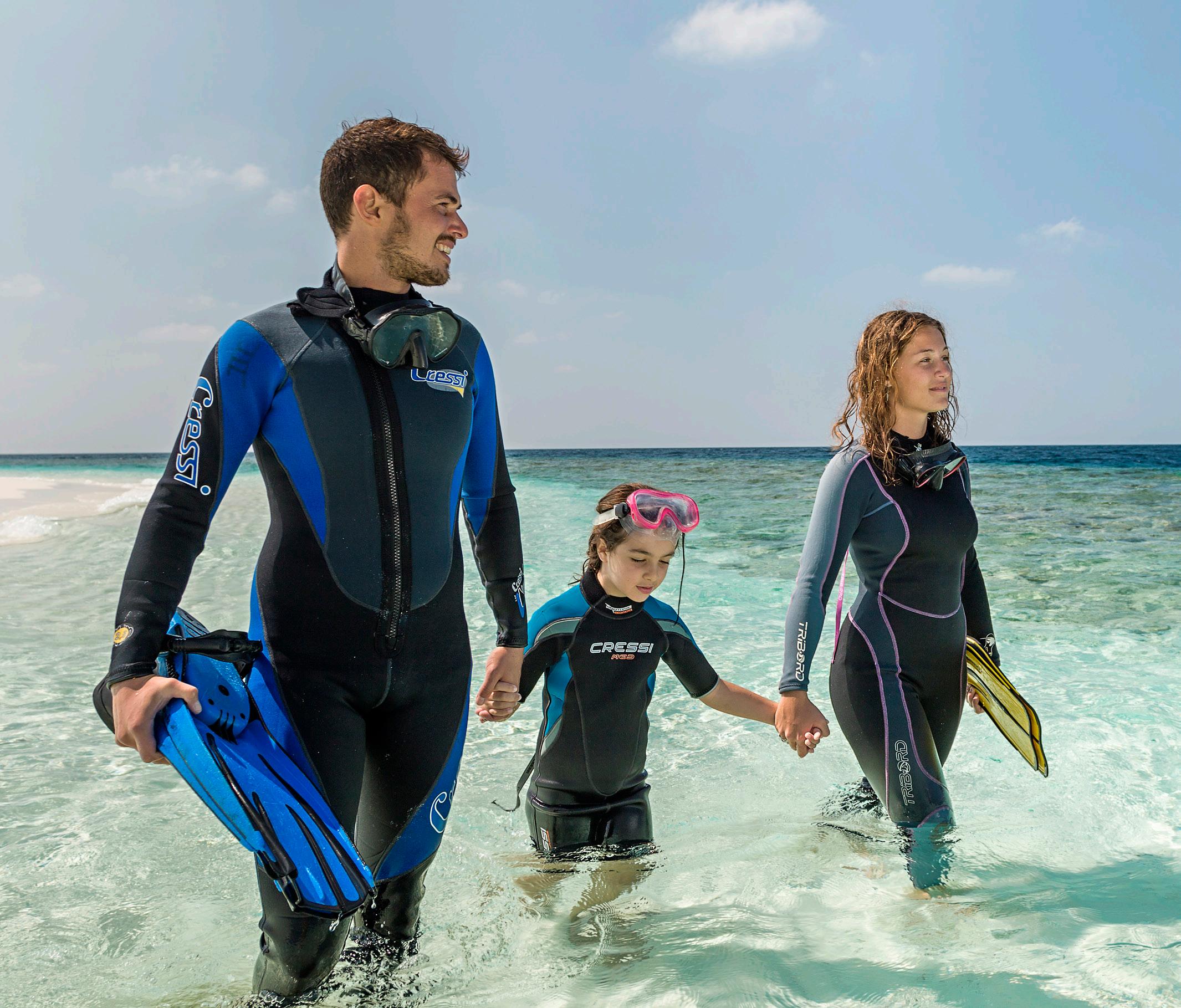
6 minute read
The Equalisation Workshop
WITH ANDREA ZUCCARI
FEATURE NATALIIA ZHARKOVA PHOTOGRAPHY JESPER KJOLLER
Advertisement
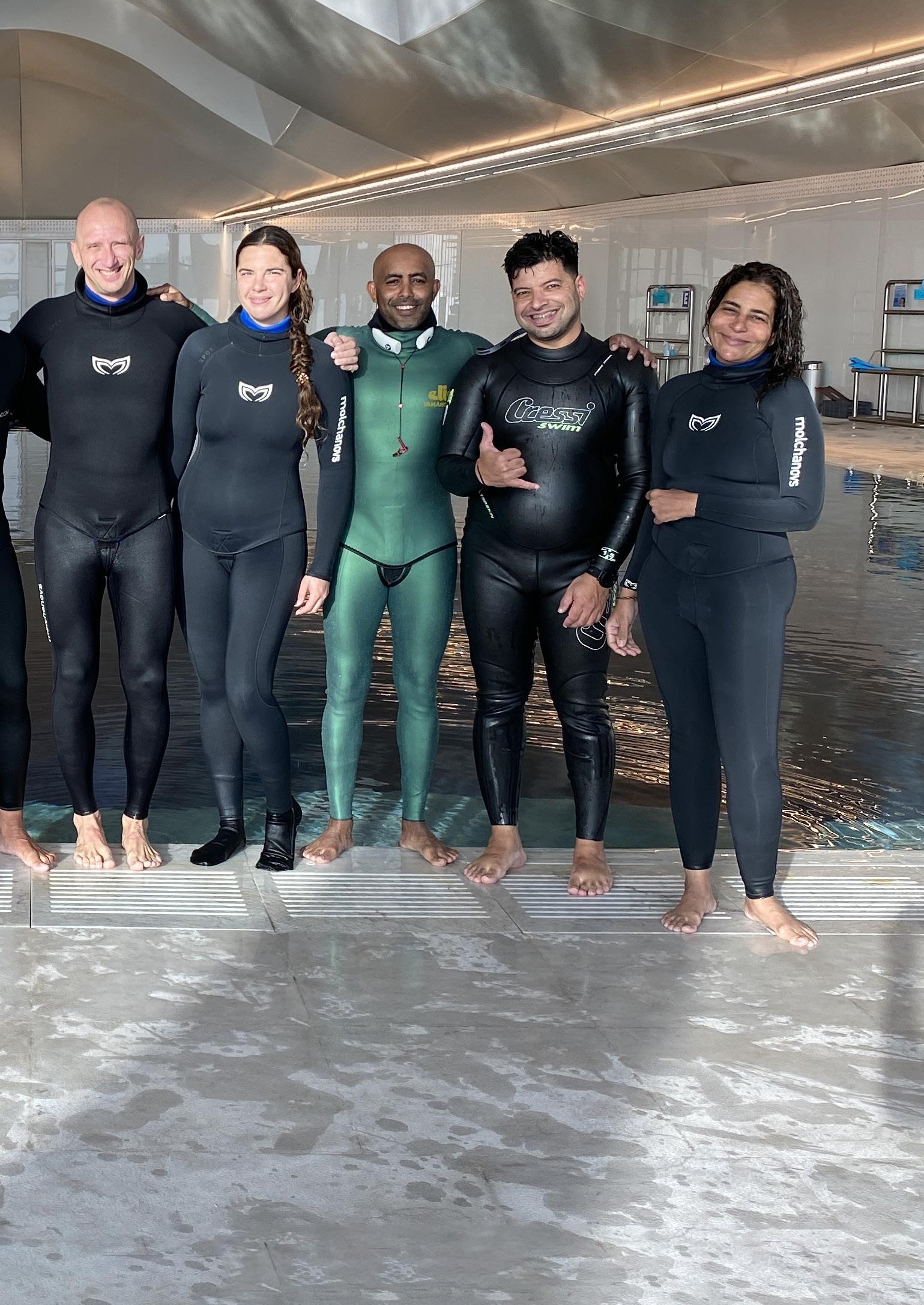
Since its opening last year, Deep Dive Dubai have hosted a few unique events providing the underwater community with opportunities to grow, develop and unite in an effort to explore humankind possibilities. This article is about one such event which took place in the first week of June with the incredible Andrea Zuccari who reached 185m on a single breath. Andrea gave a series of workshops about equalisation techniques – an essential tool in underwater exploration.
Andrea was one of the first freedivers to see and know about Deep Dive Dubai. He was invited as a consultant to the construction site and made his impact on the project back in the day. It was only fair that he became one of the first teachers to facilitate all the greatness of the deepest pool in the World.
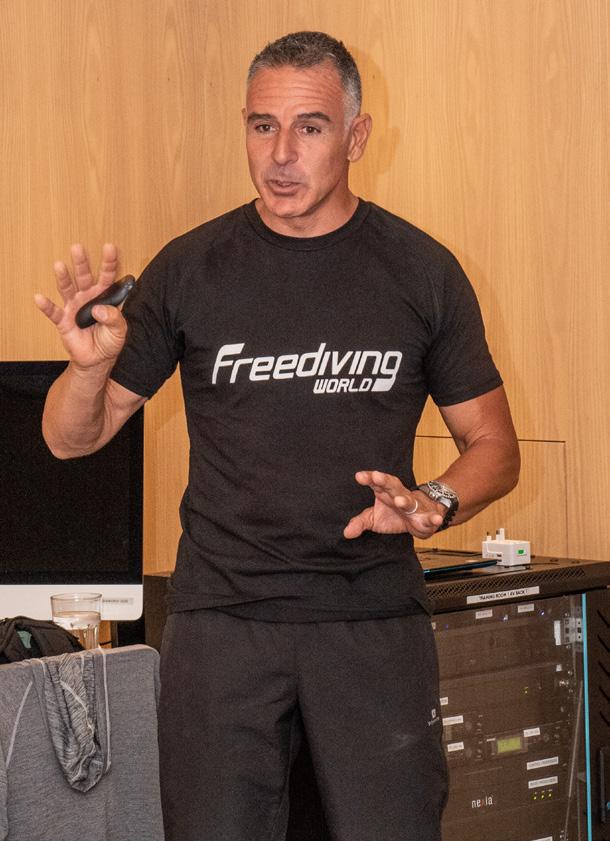
Participants from 6 countries around the World came to learn from the man who is the original source of much equalisation knowledge which many freedivers use in their everyday practice. Back to 2006 when Andrea started to set his World records, very few people knew how to teach equalisation in more detail beyond, “pinch your nose and blow”. In 2012, Andrea released his innovative didactic material on all the organs involved in equalisation, and a new era began. Nowadays it is possible to learn to equalise to 60, 70, and even 100m within just a few weeks! Back to Pelizzari times, it would take months to get at least 1m deeper…
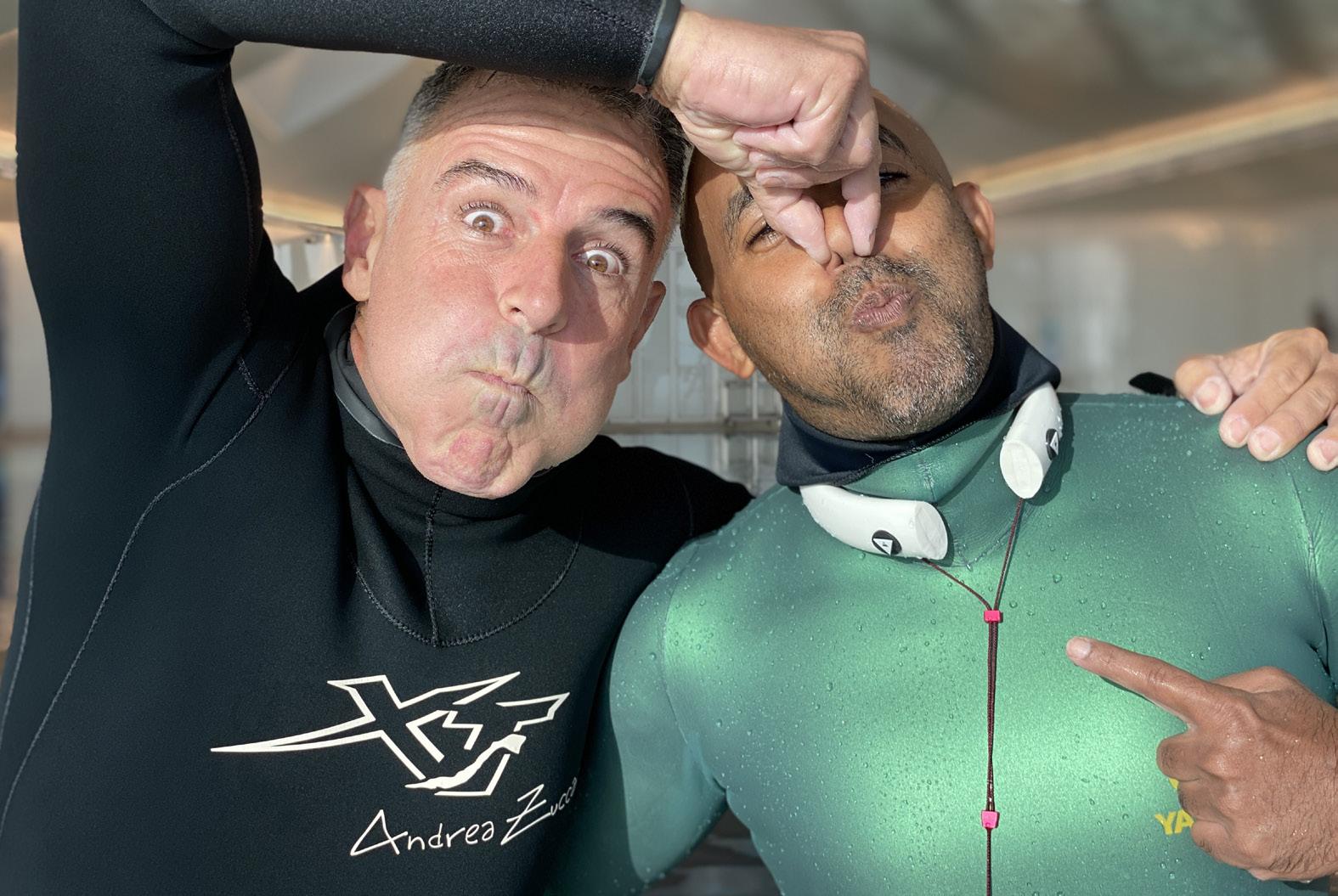
What’s in it for scuba divers? One of the days at Deep Dive Dubai was dedicated to equalisation in scuba. And if you are somehow sceptical about what a freediver has to teach to his scuba peers, you might be interested to know another fact about the man of the day: Andrea is a TDI tech diver and a PADI Tech Instructor himself. So if you dive with tanks on your back, Andrea knows your language too.
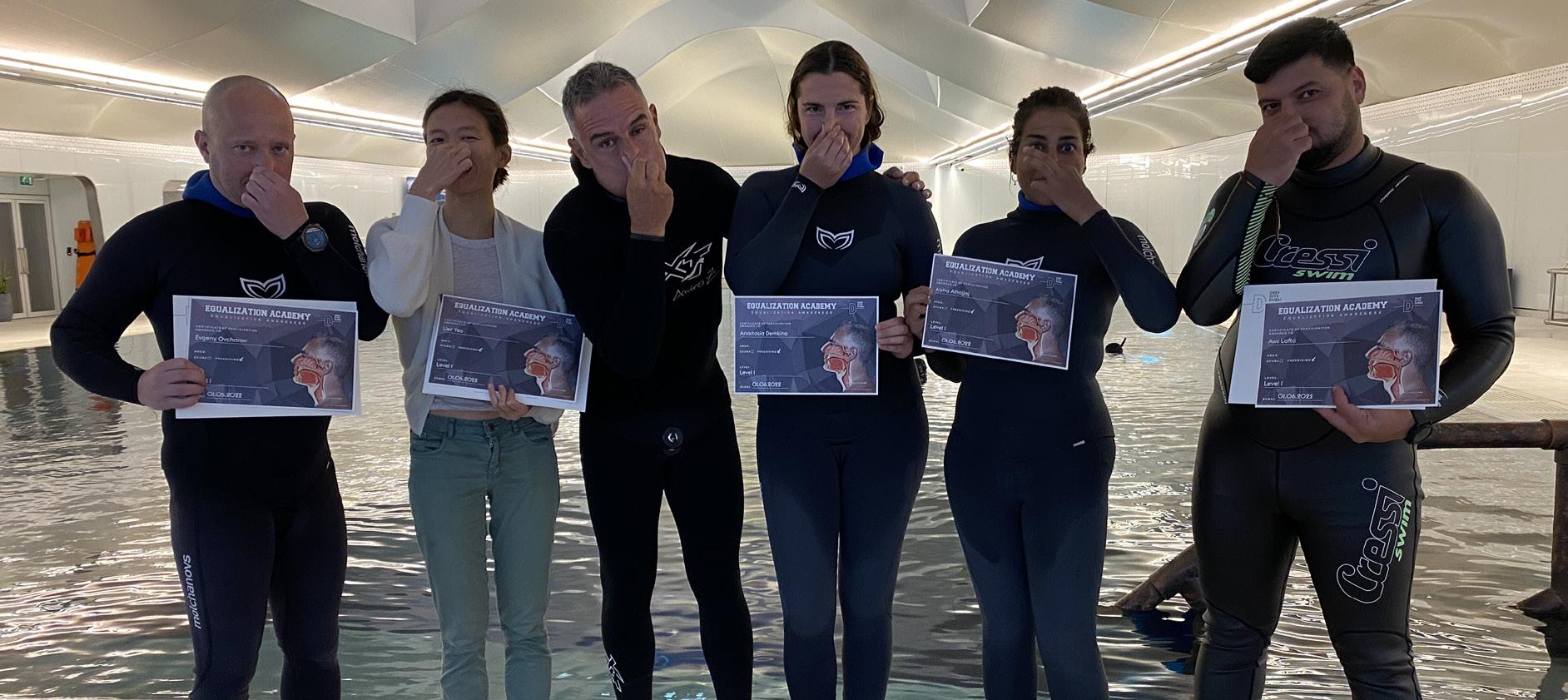
Equalisation is an important part of any kind of diving no matter whether you choose to submerge using scuba gear, or do it on a breath hold.
Why does most knowledge on how to prevent our ears and sinuses from collapsing under pressure come from freediving? Because during breath hold dives, there is a decreased volume of air available for equalisation, so freedivers learn to make very good use of it by digging into the anatomy, physiology and even phonology.
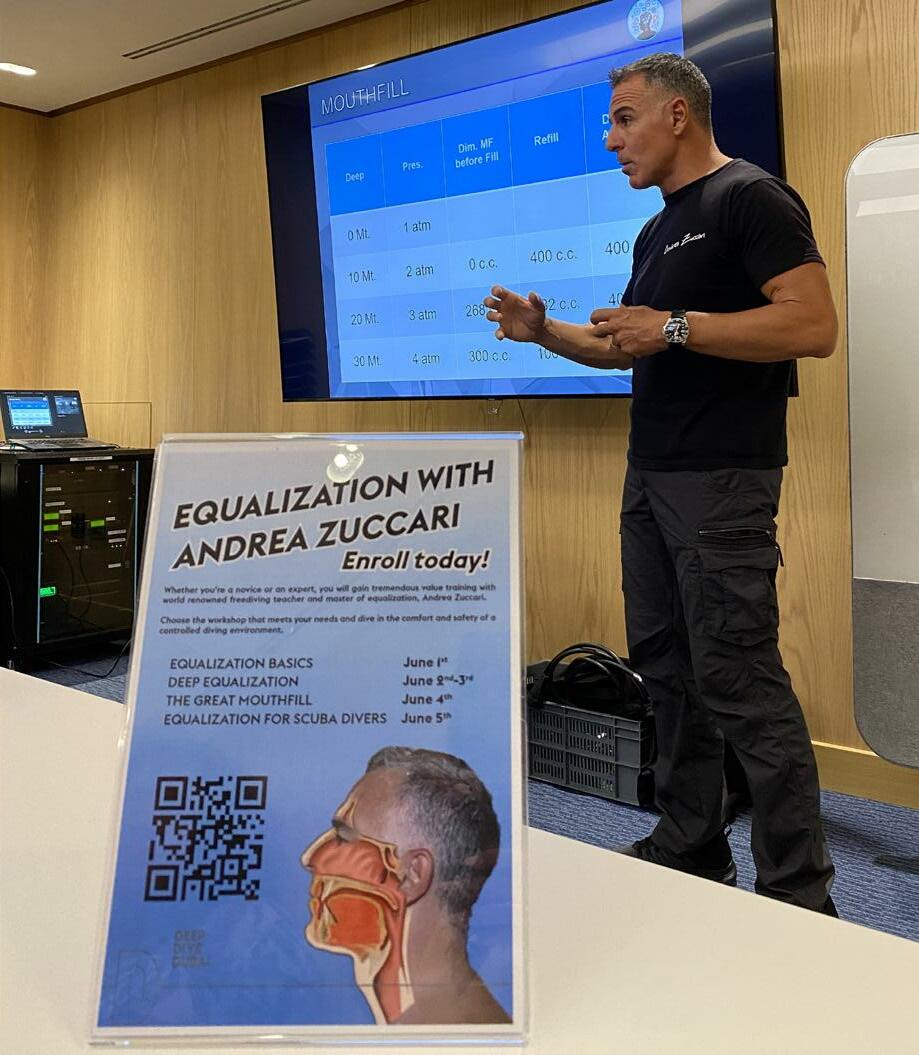
The importance of equalisation training has been appreciated even by some diving insurance agencies as a vast number of cases happen to be related to barotrauma of the ear drums, middle ears and sinuses. This is how the “Equaleasy” programme was born in collaboration between Andrea and DAN.
We asked Andrea a few questions so you can get to know the man himself!

Why do you think someone should consider getting into freediving?
Freediving can be different things: a recreational activity or a sport. Do you want to enjoy the underwater environment without heavy gear? This is freediving. Do you want to challenge yourself to discover your actual limits? This is freediving as well!
What do you think made you progress to where you are now?
Dedication and passion! I like freediving 360°. When I freedive it’s to discover the underwater environment, or challenge myself to discover how deep the human being can go. I wish to help more people discover this activity.
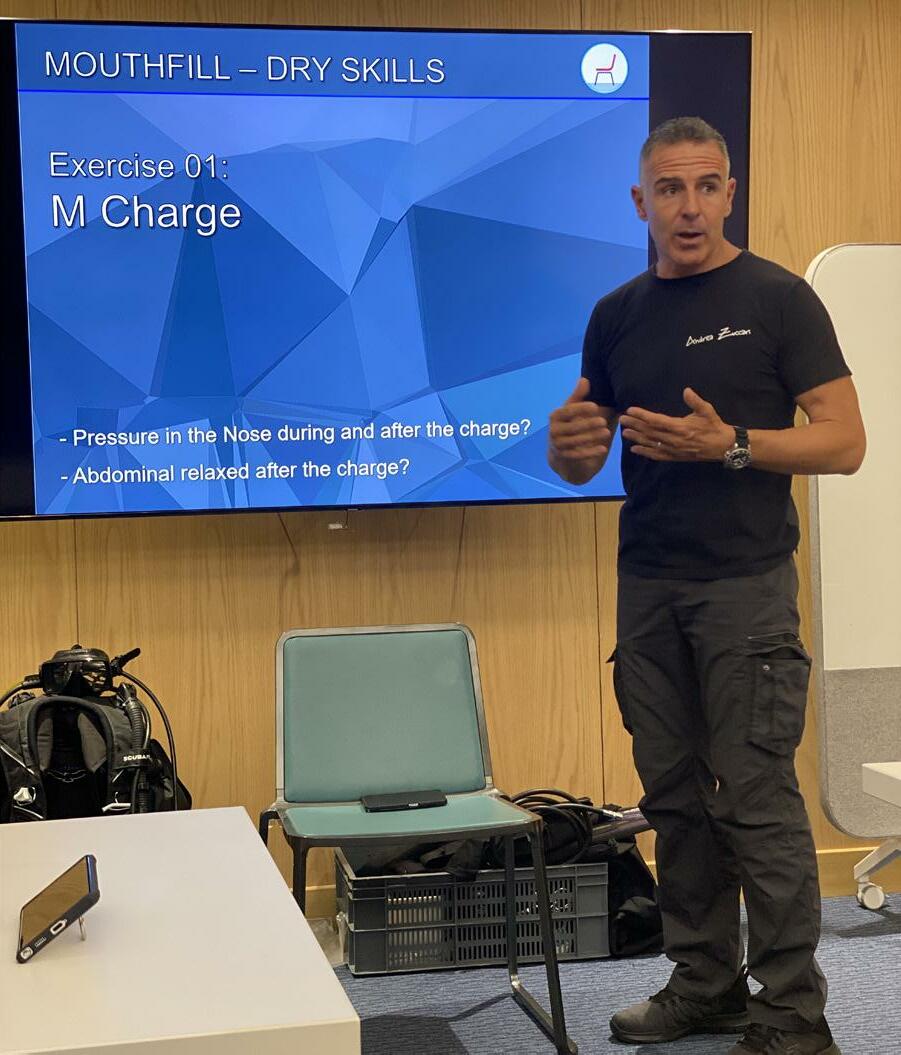
What would be your most important advice to someone who wants to freedive?
Look for a good instructor, and please, don’t try to learn via the internet. Give yourself an appropriate time to learn, and don’t push yourself too hard.
Do you think anyone can freedive?
Yes, as soon as you are able to feel comfortable in the water swimming, then you can freedive.
What holds most people back?
There are a lot of wrong conceptions out there that ‘only those who are super fit can freedive’, or ‘freediving is only good for competition’, and other such nonsense. But this is not true, you can be 12 or 70 years old – it is never a wrong time to start freediving. And you don’t need to perfect your skills everyday – freediving is a perfectly fun activity to do even if you only want to do it during your vacations.

What is different about your teaching methods?
I like the “protocols”. I believe that as soon as I start a new activity, I need to study, understand the route I’ll need to follow, and give myself a reasonable target. When I teach, I try to let my student use this approach. 1 st Theory, 2 nd Dry Activities, 3 rd Pool Activities, 4 th having fun in the sea or deep pools.
What was important for you to teach these workshops at DDD?
DDD is the perfect environment to teach and learn freediving and equalisation: nice classrooms, the gear is provided, there is an amazing team of people always ready to help you at any moment, and finally, the pool itself! The water temperature is 30°C which is not too cold, and not too warm. There is a perfect gear setup with buoys, lines, lanyard stopper, bottom plate etc, and the depth is available for a huge range of freedivers from beginners to top athletes. They can challenge themselves to a 60m depth!
In your opinion, can training in a pool such as DDD’s, help someone out to dive in the sea? If so, how? Is freediving in the pool the same as diving in the sea? No, but sometimes it’s better to start in a friendly and safer environment to pick up your self confidence. After that, go and experience the difference in the sea.
When your first attempt at deep diving starts with minutes or hours of navigation with the boat under a hot sun, only to find bad visibility, currents and waves, it can turn what was supposed to be an amazing experience, into a bad experience. Starting in a controlled environment such as DDD’s, guarantees you will gain knowledge and self awareness that will help to deal with those experiences as you will face them sooner or later anyway.

FUTURE WORKSHOPS
The next workshop with Andrea Zuccari is planned for the first week of March. Follow us to stay updated!



